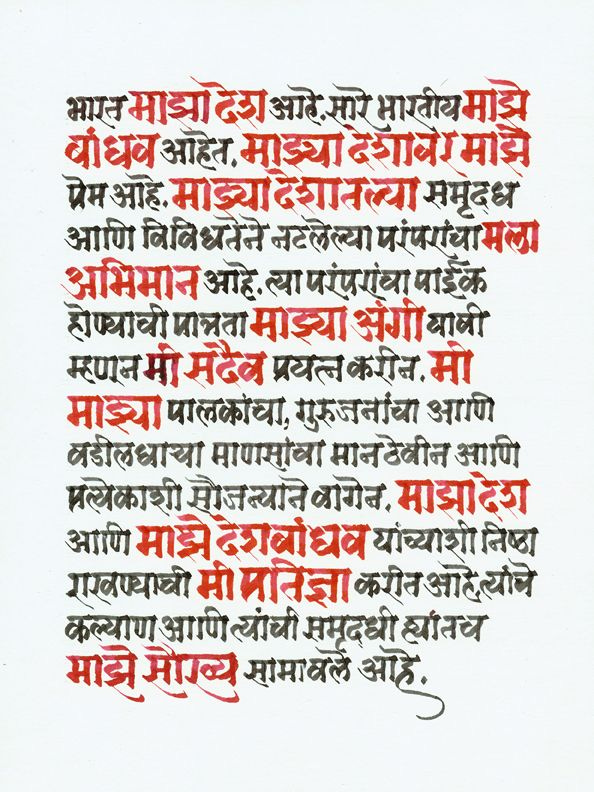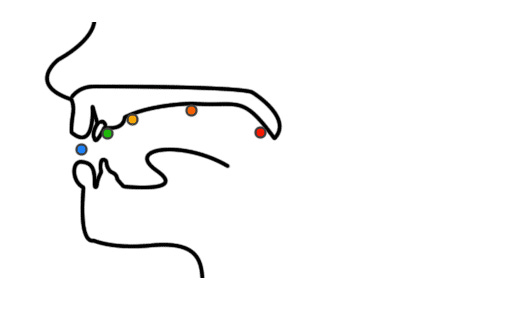Somewhere in my grief journey, I decided it might be a good idea to learn something new.
I decided, wisely or foolishly, that Sanskrit would be it! Now I am filled with regret.
Learning new things is hard, and it’s even harder to learn a new language after the age of 30. Even though that seems like a broadstrokes statement, there is some truth to it. When I was studying for my Masters in Philosophy in Education degree, I took a sociolinguistics module, and I feel head over heart in love with the study of social language usage and acquisition.
One of the many articles and journals I read focused on the challenges that people face when learning new languages after a certain age - it has a lot to do with our existing catalogue of known and practiced languages as well as the way our voice box settles in as we age. It’s a common understanding that it’s easier for children under a certain age to be multilingual than it is for an adult to be even bilingual. The whole field of discourse is incredibly rich and rewarding!
But my challenge is deep, and profound.
Sanskrit is one of the oldest documented languages in the world. It belongs to the Indo-European family of languages and has a rich history that dates back to ancient times. The earliest form of Sanskrit, known as Vedic Sanskrit, is believed to have been used around 1500–500 BCE. This period is marked by the composition of the Vedas, which are some of the oldest sacred texts in Hinduism.
The Rig Veda, one of these texts, is assumed to have been written in the 2nd millennium BCE. Classical Sanskrit, which followed Vedic Sanskrit, was used from around 700 BCE to 1350 CE. This form of the language was used in classical Hindu philosophy, historical texts of Buddhism and Jainism, and various other literary works.
Overall, Sanskrit has a history spanning over 3,000 years, making it one of the most ancient and influential languages in human history.
Trying to measure the splendour of Sanskrit will be like measuring the waters of an ocean with a teaspoon! The amplitude, splendour, evolution of the language regarded as of divine origin, the storehouse of philosophy, art, culture, Vedic wisdom, insight into life and its multifarious problems and the like are unrivalled in the world.
Who wouldn’t want to learn it?
Healthy distractions
After telling my friend that I was embarking on this learning journey, she looked at me with wide eyes asking why I would put myself through the trouble. Surely there were tools, apps and dictionaries that I could us, even AI, to help me code and decode the world around me without needing to learn Sanskrit myself?
Her question was valid, but shallow.
I might have started off better by clearing the air that my obsessive compulsive tendencies had led me down a path I could not back track on - only progress forward into. But that wouldn’t have helped. Or I might have explained or exclaimed that it would be my entry language into Latin or Greek and that many scholars recommend some Sanskrit practice to flexing the mouth and throat muscle in preparation. But that wouldn’t have simplified it.
I need a distraction, actually I need many.
I have an overactive mind and a restless energy and something that can call to attention and flow all of my idle and rattling eyes might be the best medicine.
I think we all go through these phases, don’t we? We pick up an interest in something only to abandon it when the road gets tough and the motivation (or discipline) starts to wane. I’m not there yet but check back in with me in a couple of weeks.

Sanskrit feels healing
Not to sound convoluted or out there but jumping right into learning Sanskrit has been a uniquely interesting experience. The first few pages of the guide I am using to largely self-teach, demonstrated that the placement of your tongue alone can change the sound of a letter, creating a new one altogether. So, there I sat at my desk, sticking my tongue to the different corners and areas of my mouth making interesting sounds from deep within my throat.
And it felt right.
The were definite vibrations that I felt in my throat, creeping down lower and lower. If I held a sound for more than a few seconds, it almost started to sound meditative.
The morphology of word formation is unique and of its own kind where a word is formed from a tiny seed root (called dhatu) in a precise grammatical order which has been the same since the very beginning. Any number of desired words could be created through its root words and the prefix and suffix system as detailed in the Ashtadhyayi of Panini. Furthermore, 90 forms of each verb and 21 forms of each noun or pronoun could be formed that could be used in any situation.

I read an interesting quote about Sanskrit being the Divine Mother of all languages; likely because there are hundreds of instances of Sanskrit words influencing the formations within other languages. It went on to draw out that the existence of Sanskrit alone could be attributed to India’s greatest tressure:
“If I was asked what is the greatest treasure which India possesses and what is her greatest heritage, I would answer unhesitatingly that it is the Sanskrit language and literature and all that it contains. This is a magnificent inheritance, and so long as this endures and influences the life of our people, so long will the basic genius of India continue.” — Pandit Jawaharlal Nehru (Quoted from ‘The Discovery of India’)
I’m so invested, and I’m looking forward to sneaking in my journey into learning Sanskrit in some of my writing that I share here - all a part of contributing to a more holistic view of life, death and the things of value we find between the start and ends of these major life moments.
Let’s see how this unfolds, or rather, unfurls!
Aum





Wow, I admire you so much for diving into Sanskrit! I’m bilingual and have learned other languages in the past, but even trying to pick up Spanish now in my thirties feels like climbing a mountain. So I truly bow to your courage and commitment. Sanskrit is a whole different realm, so ancient and vast. I completely understand the obsession with something so niche and profound. I can only imagine the depth and mystery and what it’s unlocking in you. Please, share more of your journey with it, Kelly!